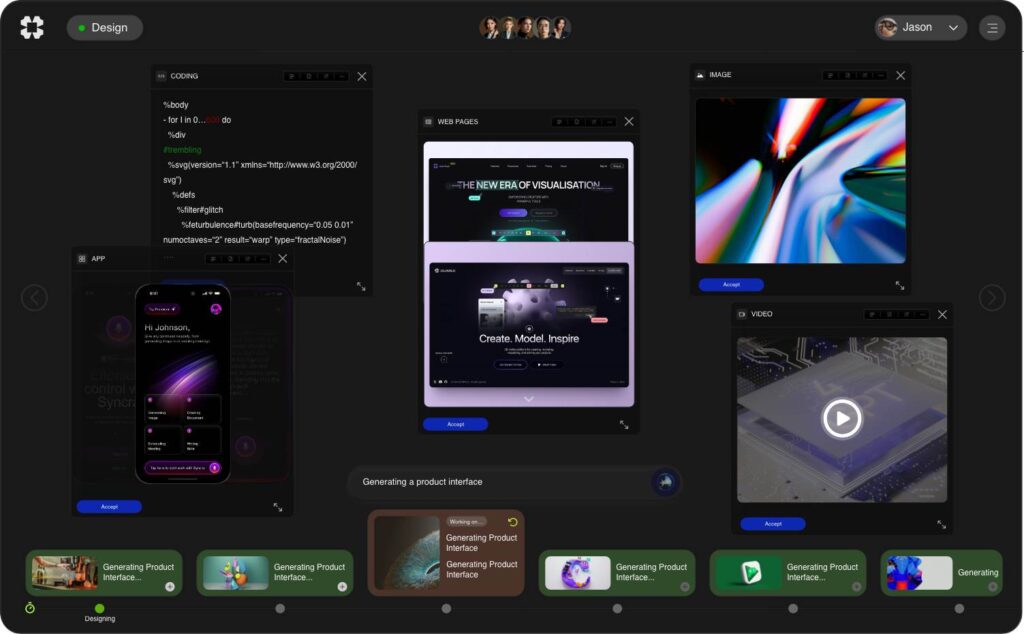AI technology has emerged as an indispensable asset across numerous industries, reshaping workflows and enhancing efficiency. As businesses and organizations increasingly turn to artificial intelligence (AI), it is crucial to explore how it is being applied in diverse fields, especially sales automation, law enforcement, and financial technology (FinTech). This article aims to provide insights into the latest trends, solutions, and applications of AI in these sectors.
## **1. AI for Sales Automation: Optimizing Processes and Enhancing Customer Engagement**
Sales automation remains a priority for many organizations seeking to enhance their competitiveness. With the implementation of AI technologies, businesses can streamline operations, increase sales productivity, and improve customer relationships.
Sales teams can benefit significantly from AI-driven tools, such as predictive analytics, lead scoring, and chatbots. Predictive analytics enables sales representatives to anticipate customer behavior and preferences based on historical data. This allows them to tailor their approaches, leading to increased conversion rates. According to a report by McKinsey, companies that utilize predictive analytics in their sales processes can experience up to a 10% increase in sales productivity.
Lead scoring, powered by AI algorithms, helps sales teams prioritize leads based on their likelihood to convert, allowing them to focus their efforts on high-value prospects. Additionally, chatbots have become essential for handling routine inquiries instantly, improving customer satisfaction while freeing up sales representatives for more complex tasks.
Indeed, companies like Salesforce and HubSpot have integrated AI features into their customer relationship management (CRM) platforms, allowing users to leverage data-driven insights to optimize their sales strategies.
Another trend in AI for sales automation is the use of natural language processing (NLP) capabilities to analyze customer interactions and emails. NLP can extract relevant keywords and phrases, providing sales professionals with actionable insights from customer conversations. This level of analysis could equip sales teams with the necessary information to fine-tune their pitches and respond to customer concerns effectively.
With AI continuously evolving, organizations must stay abreast of emerging technologies and leverage them to maintain a competitive edge in the market. Indeed, embracing AI solutions will undeniably be a key driver for future sales innovation.
## **2. AI in Law Enforcement: Enhancing Public Safety and Crime Prevention**
Law enforcement agencies around the world are increasingly turning to AI as a means to bolster public safety and improve crime-prevention measures. AI applications in this sector include predictive policing, facial recognition, and data analysis for criminal investigations.
Predictive policing utilizes algorithms to analyze crime data, ultimately helping law enforcement anticipate where crimes are likely to occur. By deploying resources proactively, agencies can mitigate crime rates and enhance community safety. According to a study by the RAND Corporation, agencies implementing predictive policing methods have seen decreases in crime by as much as 30% in certain jurisdictions.
Facial recognition technology is another area where AI is making significant inroads. Agencies use large databases to identify suspects quickly and accurately. Despite its effectiveness, the implementation of facial recognition technology has raised ethical concerns regarding privacy, bias, and potential misuse. For these reasons, many jurisdictions are beginning to adopt regulations governing its use, emphasizing the need for checks and balances in its deployment.
Furthermore, AI can assist in the analysis of massive data sets, extracting insights that can propel investigations forward. Through machine learning and pattern recognition, AI systems can reveal correlations between different crime incidents, lead law enforcement to potential witnesses, and identify crime trends that may go unnoticed otherwise.
Ultimately, the integration of AI in law enforcement has the potential to enhance resource allocation and improve community relations. However, ethical implications remain a concern that requires a transparent and accountable approach to technology use. As AI evolves, so too must the guidelines and regulations to safeguard against abuse.
## **3. AI in Financial Technology (FinTech): Revolutionizing Financial Services**
In the rapidly evolving landscape of financial technology, AI has emerged as a game-changer, driving innovation, improving customer experiences, and enhancing operational efficiency.
AI applications in FinTech include automated financial advice (robo-advisors), fraud detection, underwriting, and customer service solutions. Robo-advisors offer clients investment recommendations based on their financial goals and risk appetite, while utilizing machine learning to adapt to changing market conditions. This democratization of financial advice allows retail investors to access personalized services that were once reserved for high-net-worth individuals.
Fraud detection is another critical area where AI excels in FinTech. By analyzing transaction patterns, AI systems can quickly identify anomalies indicative of fraudulent activity. According to a report by PwC, organizations leveraging AI-driven fraud detection can reduce their fraud losses by up to 50%. This not only preserves financial assets but also enhances customer trust.
In underwriting, AI algorithms analyze vast quantities of data to assess creditworthiness, leading to more accurate evaluations. Traditional credit scoring models may not reflect an individual’s true financial situation; AI can evaluate alternative data sources, providing a more comprehensive assessment that benefits both lenders and borrowers.
Customer service in the FinTech sector has undergone a significant transformation thanks to AI-powered chatbots and virtual assistants. These tools can respond to customer inquiries 24/7, providing instant support and streamlining operations for financial institutions. The Hong Kong Monetary Authority has reported high satisfaction rates among customers who interact with AI-driven solutions in banking environments.
With the surge in AI applications in FinTech, it is crucial for organizations to remain compliant with regulatory standards. As regulators adapt to this technology landscape, financial institutions must be proactive in ensuring transparency, security, and ethical practices.
## **Conclusion**
AI is undoubtedly reshaping industries across the board, spanning sales automation, law enforcement, and FinTech. Organizations that embrace these technologies stand to gain a competitive advantage through increased efficiency, enhanced customer experiences, and improved security.
However, as we witness the continued integration of AI, it is essential to remain vigilant about ethical considerations, data privacy, and regulation. Balancing innovation with responsible practices will be the key to unlocking the full potential of AI across diverse sectors.
As AI technology continues to evolve, businesses and organizations must keep pace with the latest developments and adopt AI-driven solutions to meet changing consumer demands and operational challenges. Through collaboration, transparency, and forward-thinking strategies, we can navigate the complex landscape of AI while harnessing its transformative benefits.
By understanding the nuances of AI’s application in various industries, stakeholders can create strategies that leverage its capabilities effectively, leading to a future where AI serves as an essential partner in driving success.
—
*Sources:*
1. McKinsey & Company
2. RAND Corporation
3. PwC
4. Hong Kong Monetary Authority





















